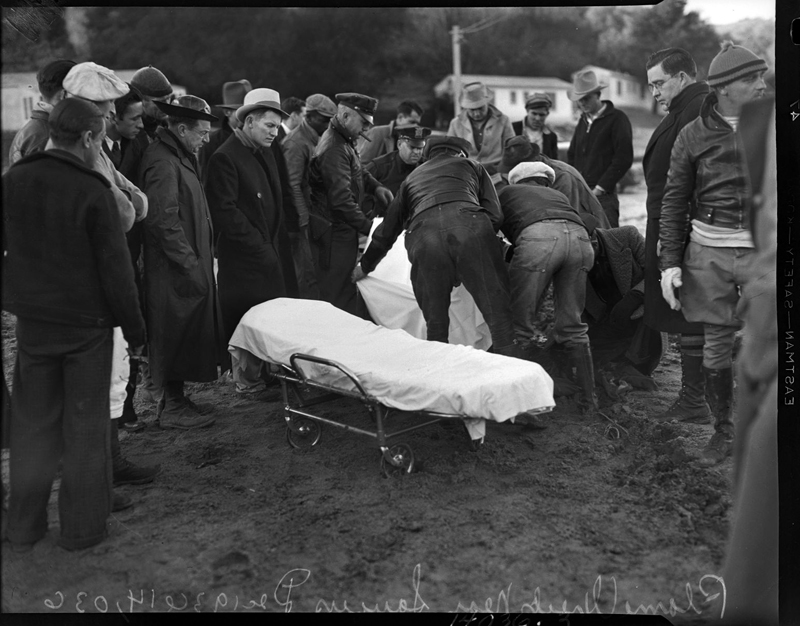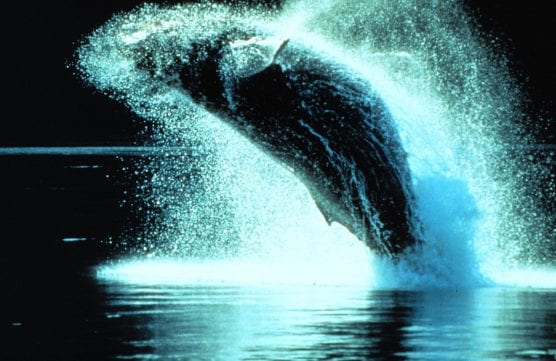SAN FRANCISCO — The Center for Biological Diversity, Turtle Island Restoration Network and Wishtoyo Foundation reached a settlement with the Trump administration Friday to protect humpback whale habitat in the Pacific Ocean, where the animals face threats from fisheries, ship strikes and oil spills.
The agreement, filed in federal district court in San Francisco, requires the National Marine Fisheries Service to follow the Endangered Species Act’s requirement to designate critical habitat by June 28, 2019, and finalize those boundaries a year later. Two Pacific Ocean humpback populations were listed as endangered, and a third as threatened, in September 2016.
“(This) victory means Pacific humpback whales will be safer in their ocean home,” said Catherine Kilduff, a Center attorney. “While delaying these protections, the Trump administration proposed opening the Pacific up to offshore oil drilling and let fishing gear tangle up dozens of humpbacks. This agreement ensures the whales will finally get the protections they need.”
One population of endangered humpback whales that feeds off California’s coast numbers around 400 individuals, meaning any death or injury from entanglement could hurt their recovery.
At least 54 humpback whales were found tangled up in fishing gear off the West Coast in 2016. Entanglements cause injuries and death as the ropes cut into animals’ flesh, sap their strength and lead to drowning.
“Once again, when we challenged the Trump administration’s attempt to illegally ignore environmental law in court, the Trump administration has been forced to change course,” said Todd Steiner, ecologist and executive director of Turtle Island Restoration Network.
“We will continue to watchdog the process to ensure humpback whales are protected and have a fighting chance at survival and recovery,” Steiner said.
Ship strikes and oil spills are the other major threats to West Coast humpback whales. A study found that an estimated 22 humpbacks off California, Oregon and Washington die each year after being hit by ships.
On Jan. 4 the Trump administration released its plan to invite offshore oil and gas drilling into every ocean in the country — despite the dangers of oil spills to whales and other marine life.
In 2015 endangered humpback whales were observed swimming in the Refugio oil spill, which dumped at least 21,000 gallons of crude oil into the ocean. The spill killed hundreds of marine mammals and birds, including dolphins and sea lions.
“Wishtoyo Chumash Foundation would like to express our gratitude for our partners and everyone who worked together on behalf of the protection of the humpback whales,” said Alicia Cordero, First Nations program officer at the Wishtoyo Foundation.
“Appropriate designation of critical habitat is essential for ensuring the safety and well-being of our humpback whale relatives who have been navigating our coastal waters since time immemorial,” Cordero said.
Critical habitat protection will help safeguard ocean areas essential for migrating and feeding. The designation will ensure that federally permitted activities do not destroy or harm important whale habitat.
Evidence shows that endangered or threatened species that have protected critical habitat are twice as likely to show signs of recovery as those without it.
Humpback whale populations that need critical habitat were identified in 2016 by the National Marine Fisheries Service, including the threatened Mexico population that feeds off the U.S. West Coast and Alaska and the endangered Central America population that feeds almost exclusively off California and Oregon.
The Center for Biological Diversity is a national, nonprofit conservation organization with more than 1.6 million members and online activists dedicated to the protection of endangered species and wild places. Visit www.biologicaldiversity.org.
Turtle Island Restoration Network is a global nonprofit whose mission is to inspire and mobilize people around the world to protect marine biodiversity and the oceans that sustain all life on Earth.
Founded in 1997, Wishtoyo Foundation is a 501(c)(3) nonprofit grassroots organization that enhances the well being of communities by preserving and protecting Chumash Native American culture, and the natural resources all people depend upon throughout California and the traditional Chumash range in Ventura, Los Angeles, Santa Barbara and San Luis Obispo counties. To learn more about Wishtoyo visit www.wishtoyo.org.
Like this:
Like Loading...
Related





 Tweet This
Tweet This Facebook
Facebook Digg This
Digg This Bookmark
Bookmark Stumble
Stumble RSS
RSS


























REAL NAMES ONLY: All posters must use their real individual or business name. This applies equally to Twitter account holders who use a nickname.
1 Comment
So the deaths caused by nets happened in 2016 during the OBAMA Administration!
The Trump administration came to the table and worked out an agreement with you for protection of the whales while trying to balance the countries need for oil.
Sounds like another example of MAGA